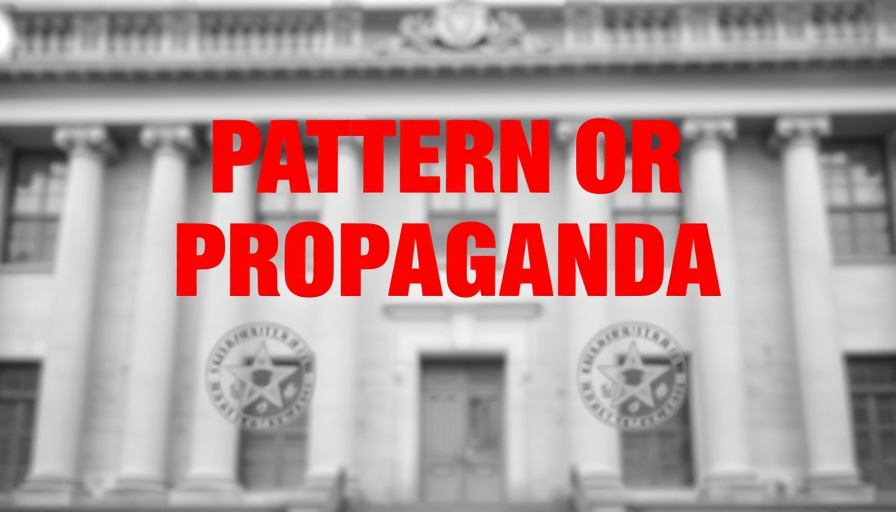
A Critical Examination of the DOJ's Phoenix Report
The recent release of the Department of Justice's (DOJ) Phoenix Report has sparked intense debate about law enforcement practices across the United States. With alarming findings such as a staggering 97% deception rate in officer narratives, the report casts a shadow over police accountability and transparency. For police departments, government policymakers, and academic researchers in the realm of public safety, understanding the implications of this report is crucial.
The Impact of Deceptive Practices on Community Trust
As law enforcement agencies grapple with increasing scrutiny, this deception rate raises serious questions about the integrity of investigations. Public trust, the cornerstone of effective policing, is jeopardized when communities perceive a lack of honesty from their local law enforcement. Moreover, the consequences extend beyond community relationships; misguided narratives can lead to wrongful arrests and further entrench systemic issues within the justice system.
Historical Context: The Evolution of Police Accountability
The DOJ's findings do not emerge in a vacuum. Over the past decade, police reform advocates have pushed for greater transparency and accountability in law enforcement. Events such as high-profile trials and civil rights movements have highlighted the need for police ethics training and improved communication strategies within departments. As agencies adopt body cameras, the requirement for accountability has intensified, transforming how officer-involved incidents are scrutinized. The Phoenix Report illustrates that despite advancements, foundational issues remain, warranting renewed focus on ethics and community engagement.
Counterarguments: Defending Law Enforcement Practices
Opponents of the DOJ's narrative contend that the report may misrepresent the realities of law enforcement. They argue that the high deception rate could reflect misunderstanding or misinterpretation of officer accounts rather than deliberate falsehoods. Furthermore, critics suggest that policing is often constrained by complex social dynamics and the unrealistic expectations placed upon police to maintain order in increasingly volatile environments. This perspective emphasizes the need for context in interpreting data, especially when it relates to law enforcement tactics and community interactions.
The Way Forward: Strategizing Police Reform
In the wake of the Phoenix Report, police departments have an opportunity to reassess their operational frameworks. Community policing strategies that foster partnerships between law enforcement and citizens are crucial for rebuilding trust. Implementing comprehensive police training focusing on ethics, mental health crisis intervention, and the proper use of technology such as AI and body cameras will further enhance officer performance and community relations.
Conclusion: The Importance of Transparency and Trust in Policing
For police agencies, acknowledging and addressing the findings outlined in the Phoenix Report is not just about damage control; it is a pivotal moment for growth and reform. By opening channels for dialogue with the community, enhancing officer training and wellness programs, and robustly adopting accountability measures, law enforcement can begin to reclaim the public's trust lost to dubious narratives. As we look to the future of policing, thoughtful policy changes and strategies are critical for ensuring public safety and justice.
For those involved at any level in law enforcement, whether through policy-making or community engagement, engaging with these findings is essential to foster an environment of accountability and trust.
 Add Row
Add Row  Add
Add 

 Add Element
Add Element 




Write A Comment